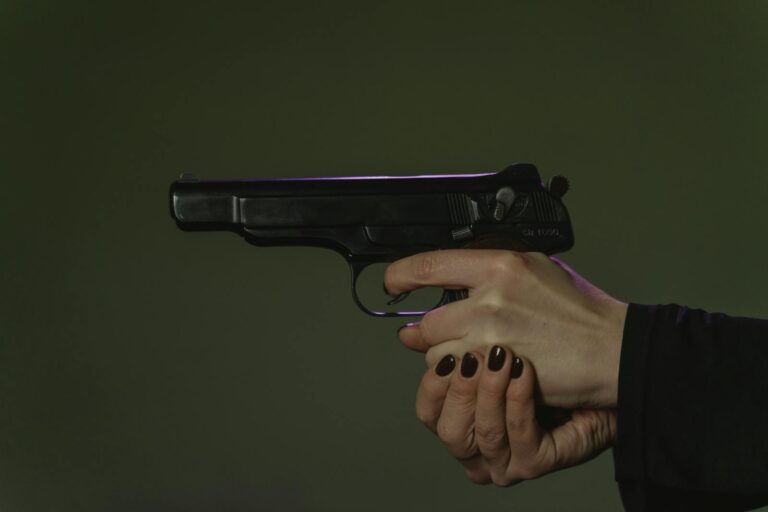Insanity Defense: Consequences of Pleading and Winning
Have you ever wondered what would happen if you pled insanity in court and won? At ReedsAndReeds, we have seen clients face complex legal challenges, and this one is no exception. The journey through the legal system can be daunting, especially when dealing with such a unique defense. Let us guide you through what unfolds after a successful insanity plea.
As stated by the American Psychological Association (APA), if you plead insanity and win, you will not go to a regular jail. Instead, you will likely be sent to a mental health facility. You will stay there until doctors decide you are no longer a danger to yourself or others.
What Is the Insanity Defense?
The insanity defense allows defendants to argue they shouldn’t be held accountable due to a severe mental illness affecting their ability to distinguish right from wrong.
At its simplest, this defense admits that the person did commit the crime but claims they shouldn’t be blamed because of their mental condition at that time. To use the insanity defense, the person has to show they didn’t understand what they were doing or couldn’t tell right from wrong.
Generally speaking, usually, it’s up to the defense to prove the person’s mental state during the crime. If they prove it, the person might be found not guilty due to insanity and could be sent to a mental health facility instead of prison. But the insanity defense is tricky and different in various places. It’s not used often and can be hard to prove.
Types of Insanity Pleas
There are three main types of insanity pleas in criminal cases: insanity defense, diminished capacity defense, and temporary insanity defense.
At its simplest, the diminished capacity defense argues that the defendant’s mental state prevented them from intentionally committing the crime. The temporary insanity defense claims that the defendant could not understand what they were doing at the time because of a mental health issue.
At its simplest, both types of insanity pleas need a thorough check of the defendant’s mental health history and current condition. It’s usually up to the court to decide if the plea is valid and whether the defendant should be held responsible for the crime. Insanity pleas are complicated and sometimes controversial, and they don’t always work in court.
Legal Process for Pleading Insanity
Drawing on earlier remarks, the legal process for pleading insanity requires a defendant to demonstrate that they were not mentally competent at the time of the crime.
At its simplest, this type of defense often needs a psychiatric exam to check the defendant’s mental state. If proven legally insane, the defendant might be cleared of the crime or deemed guilty but not responsible.
Essentially, however, this defense doesn’t always work and can be hard to prove in court. The judge or jury decides if the insanity plea is valid based on the evidence shown.
Outcomes of Winning an Insanity Plea
Building on what was said earlier, defendants winning an insanity plea are sent to mental health facilities instead of prisons.
To simplify, if the defendant is found not guilty because of insanity, it doesn’t mean they’re free to go. Instead, they’ll go to a mental health institution for treatment and evaluation. They’ll get psychiatric help and might be released if they’re no longer considered a danger to themselves or others.
Honestly, the court will keep an eye on them and make sure they continue to get the right treatment. Winning an insanity plea can also affect their civil rights, like not being allowed to own guns or have certain job licenses. In short, being found not guilty because of insanity involves a lot of legal and medical steps that keep going over time.
Long-term Consequences of Insanity Plea

Repeating past discussions, the insanity plea can lead to extended psychiatric treatment or confinement, significantly impacting one’s future freedoms and opportunities.
At its heart in some cases, people who plead insanity might be sent to a mental health hospital for treatment. They could stay there for a long time, which can affect their mental health and overall well-being.
Also, they might face stigma and discrimination in society. This can hurt their relationships, job chances, and quality of life. They might have to follow strict rules and treatments, which can be tough and intrusive.
At the simplest level on the other hand, pleading insanity can help them avoid a criminal record and jail time, which can be good for their future. But, they may still face challenges dealing with the legal and mental health systems.
In Epilogue
In the preceding section pleading insanity and being successful in court can lead to being acquitted of criminal charges. However, this does not mean complete freedom as the individual may still be required to undergo psychiatric treatment or be placed in a mental health facility.
What ReedsAndReeds is preferring you think about is, that winning an insanity plea can have legal consequences but also ensures that proper care and treatment are provided to those who need it.







